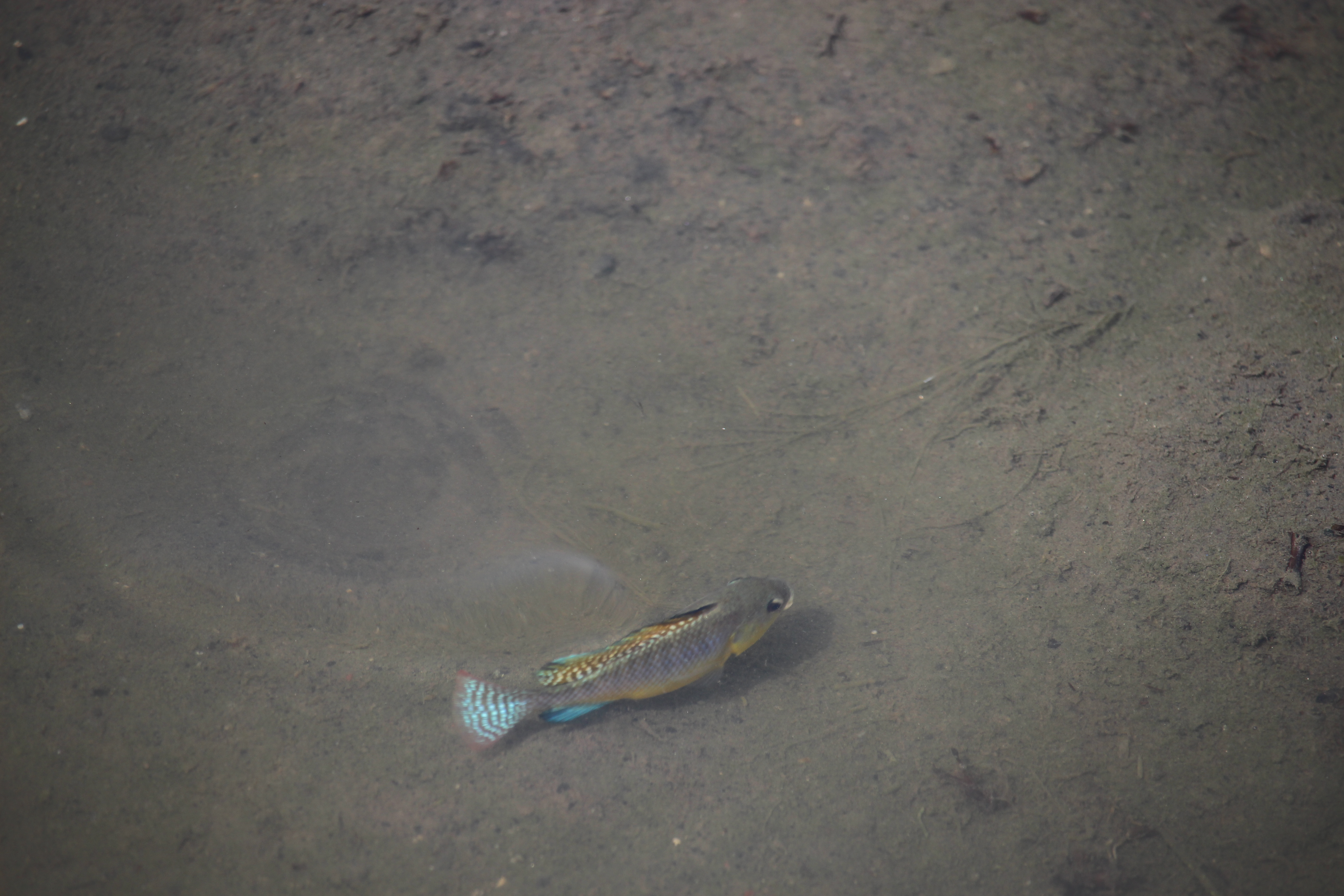The Department of Life Sciences received new research grant on rare fish species
- Sunday, June 2, 2019
Dr Antonia Ford from the Department of Life Sciences has recently received a research grant from the British Ecological Society for nearly £5,000 to study species of fish that live in extreme conditions in the volcanic springs of Tanzania.

These fish are found nowhere else in the world and are known as soda lake cichlid fish. They live in volcanic springs surrounding the East African soda lake, Lake Natron, where water temperatures reach 42 °C. The water also has low oxygen levels and high alkalinity, which is a habitat that no other fish are capable of surviving.
Currently, there are three known species living in the volcanic springs. On a previous field trip to Lake Natron, Antonia Ford and colleagues surveyed several springs, and found one spring inhabited by cichlid fish that look very different from the three known species.
Dr Antonia Ford said “This particular spring has very different environmental conditions from the other springs. In the study, we will be able to genetically sequence the fish from this spring to examine DNA and ancestry patterns to investigate whether this population represents a new species and whether it is a result of past hybridisation between the known species found in the other springs.”
This research aims to build our knowledge of evolutionary and ecological processes generating biodiversity and enable understanding of how environmental changes may affect communities and species diversity in diverse ecosystems.
The British Ecological Society was established in 1913 and has 6,000 members around the world that work on regional, national, and global scales to advance ecological science.
The Department of Life Sciences offers an outstanding undergraduate degree in Biological Sciences and a Biological Sciences (Integrated BSc and MSc) and staff undertake world-class research which changes lives and furthers our understanding of science.